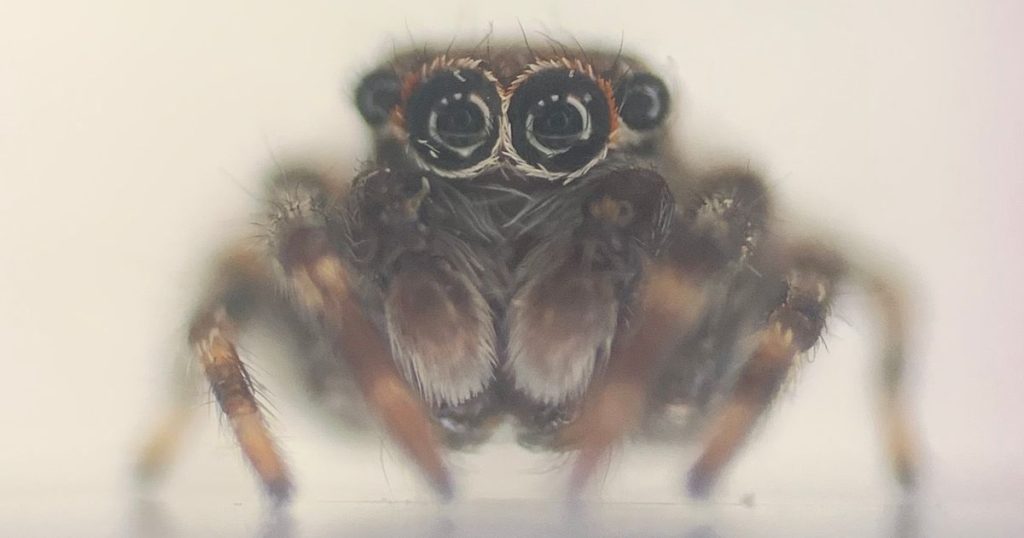Last year, a BioBlitz nature survey at the University of Exeter’s Penryn Campus in Cornwall discovered a new species of tiny jumping spiders, along with 500 other species. An exotic species of “jumping” spiders, identified as Anasaitis milesae, made a debut appearance in the UK. These spiders are known for their incredible ability to leap as they hunt for prey or escape danger. Experts believe they may have been introduced to the UK through imported plants. The discovery of these spiders, as well as the other species, raised concerns about potential invasions, particularly due to the warming climate and increased international trade.
The tiny jumping spiders found in Cornwall were unlike any other arachnid species in Europe. Upon further investigation, they were identified as belonging to the Caribbean genus Anasaitis, but they did not match any known species. Surprisingly, this species has not been officially identified in their native range, making the Penryn Campus and another recent record in Penzance the only places in the world where they have been observed. This discovery highlights the potential for unseen tropical species to appear in the UK due to climate change and international trade. The coastal regions of Cornwall and Devon are particularly vulnerable to new spider species due to their ports and mild climate, posing a competition for native spiders in terms of prey and habitat.
Dr. Helen Smith, a conservation officer for the British Arachnological Society, emphasized the challenges of preventing spiders from arriving in new areas and the impact of new, exotic species on native biodiversity. With a warming climate and changing ecosystems, the introduction of invasive spider species poses threats to less common native species. Coastal towns, such as those in Cornwall and Devon, are at a higher risk due to their geographical characteristics and economic activities. The discovery of Anasaitis milesae in the UK serves as a reminder of the interconnectedness of global ecosystems and the need for monitoring and conservation efforts to protect biodiversity.
The identification of Anasaitis milesae in the UK highlights the importance of biodiversity surveys and monitoring to track the spread of exotic species and their potential impact on native ecosystems. The remarkable ability of tiny jumping spiders to navigate and adapt to new environments raises questions about the resilience and survival strategies of different species in the face of environmental changes. As more unseen tropical species are expected to appear in the UK, it becomes crucial to implement effective management strategies to mitigate the risks of invasive species and protect native biodiversity. By combining scientific research, public awareness, and conservation efforts, we can work towards safeguarding the delicate balance of our ecosystems.


